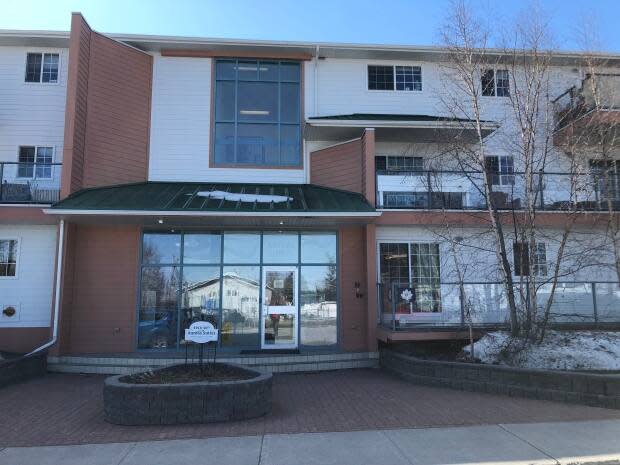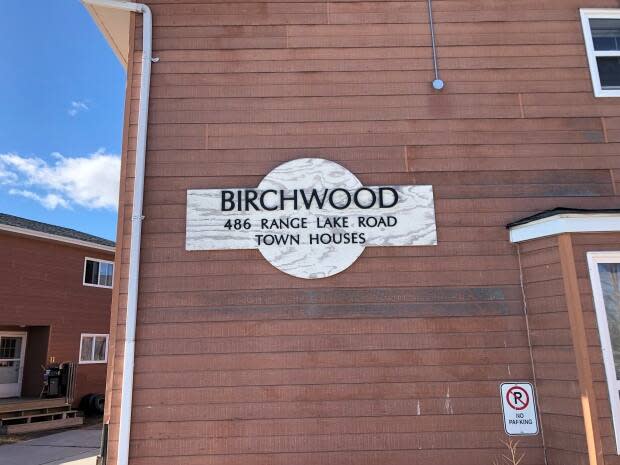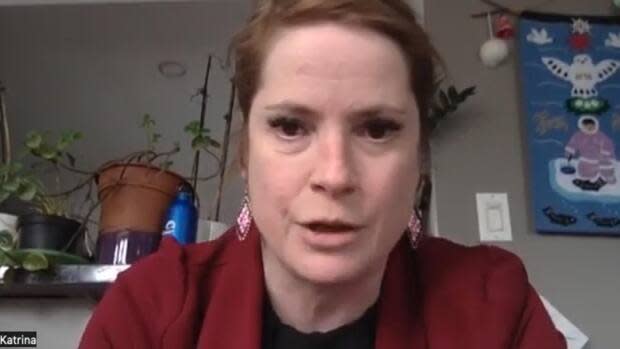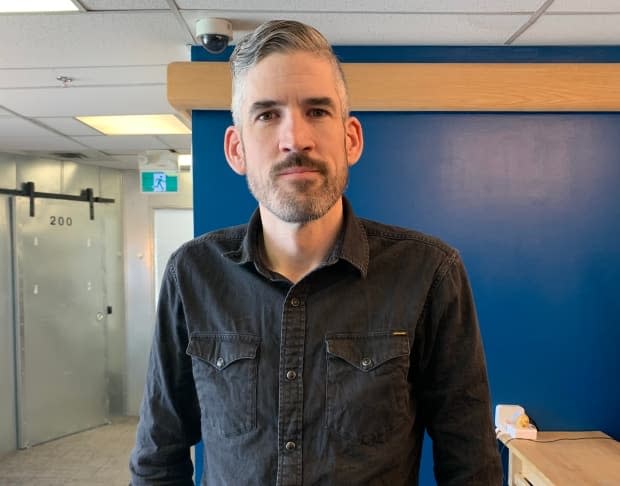Rent hikes prompt calls for a rent cap in Yellowknife. Would it help?

For over a year, Timothy Zoe-Martin rented a bachelor apartment in downtown Yellowknife at Aurora Suites.
"I loved it, it's about five minutes away from everything downtown," he told CBC News back in February.
He paid $1,500 a month for the unit, a price he described as "not terrible, at least in Yellowknife."
But Zoe-Martin has since had to move in with his parents after his rent was increased by 43 per cent. Now he, and other tenants and advocates, are calling for legislation to prevent rental increases that make the cost of living unaffordable.
The subject is similar to what happened at the Birchwood town houses, a situation that led to a petition and even a vote in the Legislative Assembly on rent control.
Critics say the policy, which has not been implemented, would make Yellowknife's housing situation worse, and push away possible investment.
'I've been a good tenant'
Zoe-Martin was informed of the rental increase by email on Feb. 1, with no further explanation.
"I was thinking, what are they trying to do? Are they trying to get me to move out of my apartment? Like, I've been a good tenant," he said.
"I rarely ever party. And if I do, it's like me and four friends playing Dungeons and Dragons or something."

The increase came after the building was sold by YKD Property Management last fall to a company owned by Kenneth Ruptash, who owns Nahanni Construction Ltd.
CBC News reached out to Ruptash multiple times by phone and email for this story, but never received a response.
Several tenants of another of Ruptash's buildings, Birchwood apartments and town houses — where some units hadn't had regular heating for years — were also served with an approximate $700 to $800 rental increase earlier this year.
Ruptash bought the property last November and the heating issues were fixed in many units shortly after, which some tenants said they appreciated. But they still said they were shocked to see a rental increase after what they had experienced.
One Birchwood tenant, who CBC News granted anonymity due to fear speaking on the subject could affect her living situation, said her heat wasn't fixed over the past winter.
She said she's received power bills for $900 and another for $700, due to using space heaters for warmth. CBC News has not been able to verify the claims of the heating costs.
"I'm paying $3,000 for … like a three-bedroom house [where] I can literally only use the living room and the kitchen," she said, adding her children often sleep in the living room with her.

She said she's been on the public housing wait list for years and has had to go back to work, ignoring advice from her doctor, as she has a back condition.
She's hoping income assistance will help, but expects to still struggle to get by.
"It's pretty much going to be living cheque to cheque," she said.
A petition, and a motion
This situation led Lisa Thurber, the founder of the Tenants Association of the Northwest Territories, to launch a petition asking the territorial government to legislate a rental cap, or limit on how much landlords can raise rents each year.
"It's like clockwork with rent increases in the Northwest Territories, every year you're just hit up with a rent increase," she told CBC News.
Thurber spoke from Alberta, where she recently moved. She says she could no longer afford to live in the N.W.T., especially Yellowknife where single bedrooms in shared homes are now routinely advertised for over $1,000 a month.
The petition was discussed in the Legislative Assembly in March, when Great Slave MLA Katrina Nokleby put forward a motion that was passed by MLAs.
The motion recommended the territorial government update the Residential Tenancies Act to include maximum allowable rent adjustments which are no more than the five-year average of the Canada consumer price index. Increases above that would have to be cleared by the N.W.T. rental office.

Similar policies have been introduced in B.C., Manitoba, Ontario and P.E.I. and recently the Yukon implemented its own rent cap, though the party that put forward the idea has admitted to unexpected consequences, including a rise in evictions.
The motion in N.W.T. is mainly symbolic as the only way for the rental regulations to change would be for the N.W.T. Justice Minister R.J. Simpson to change the Residential Tenancies Act.
CBC News reached out to Simpson by email to discuss the subject, but was redirected to the justice department, which directed CBC to the rental office. Adelle Guigon, the territory's chief rental officer, declined an interview, offering only to answer questions by email.
Hurting the market further
Speaking with CBC News in late April, Nokleby said she had learned more about the subject and changed her position. She said she feels there is legislation that does protect tenants, and the territory doesn't need a rent cap.
"I definitely should've put a little bit more thought into what I was proposing," she said.
Yellowknife city councillor Rob Warburton, who owns and rents out properties in Yellowknife, said putting a limit on how much rent can be raised will just lead to fewer units being built and put further strain on the market.
"You're telling somebody what they can charge for their investment," he said.

Warburton said as housing is a private market, there needs to be profit from it and if there can't be, there will be no incentive for people to build and invest.
He also said rent hikes reflect the broader market and are influenced by rising labour and materials costs as well as inflation.
Zoe-Martin, who previously lived at Aurora Suites, said although he feels lucky he has somewhere to stay, he fears that he could find himself in the same situation in his next place if nothing changes.
"I know there's a lot of people in town that can probably more easily afford to live in places that charge $2,150," he said.
"But, there's also a lot of people in town that can't ... For a long time I've lived paycheck to paycheck. If there's no rental cap, what's to stop my next landlord from doing this to me, right?"


